The Dec. 26 filing from HTC describes "a handheld wireless device, namely, a tablet computer," Bloomberg reports. Though a trademark filing is far from a definite indication that the mobile phone maker will release the trademarked product, a tablet device from HTC, the world's largest maker of phones running Google's Android mobile operating system, is seen by many as inevitable.
According to the report, HTC Chief Financial Officer Cheng Hui-Ming said in October that the company is "studying the market." HTC, which revealed that sales of its mobile phones had more than doubled last quarter year-over-year, has seen impressive success with its Android phones. Investor confidence in HTC has risen as well, with shares on the Taiwan Stock Exchange rising by more than 100 percent this year.
The HTC Scribe would "provide an alternative to the iPad,†IDC program director Will Stofega told Bloomberg. “This will compete on pricing, and could be as good or better.â€
In a Dec. 13 report, KGI Research analyst Richard Ko predicted that HTC will launch a tablet at the Consumer Electronics Show next week or during the Mobile World Congress in February.
The HTC Scribe would likely run Android 3.0, dubbed Honeycomb, which will be optimized for tablet use. Earlier this month, journalist Walt Mossberg asked Android chief Andy Rubin whether Honeycomb is a version that "happens to work on tablets" or a version for tablets. Rubin hedged that "it's a bit of both."
Motorola is readying its own Android tablet, which was demoed by Rubin at the D: Dive Into Mobile conference. In a teaser video tracing the "evolution" of tablets, Motorola called the iPad a "giant iPhone" and insulted the Samsung Galaxy Tab as running "Android OS…for a phone." Motorola called its future tablet "the next chapter in evolution," and is expected to be unveiled at CES.
Earlier this year, Apple sued HTC, accusing the company of infringing on 20 patents related to the iPhone's interface.
In a press release announcing the lawsuit, Apple CEO Steve Jobs said, "We can sit by and watch competitors steal our patented inventions, or we can do something about it. We've decided to do something about it," said Apple co-founder Steve Jobs.
HTC responded in kind with a countersuit of its own, alleging that Apple had violated five of its patents.
"As the innovator of the original Windows Mobile PocketPC Phone Edition in 2002 and the first Android smartphone in 2008, HTC believes the industry should be driven by healthy competition and innovation that offer consumers the best, most accessible mobile experiences possible," said HTC vice president Jason Mackenzie. "We are taking this action against Apple to protect our intellectual property, our industry partners, and most importantly our customers that use HTC phones."
Apple's lawsuit against HTC was largely viewed as the first move in a legal confrontation over Android-based phones, as the lawsuit contains a specific section for "Accused HTC Android Products." In October, Motorola sued Apple over alleged infringement of a range of wireless technologies. Apple quickly countersued, eventually adding to the case 11 of the patents included in Apple's suit against HTC.
 Josh Ong
Josh Ong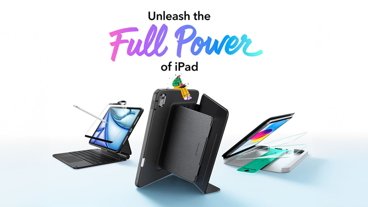



-xl-(1)-xl-xl-m.jpg)


-m.jpg)





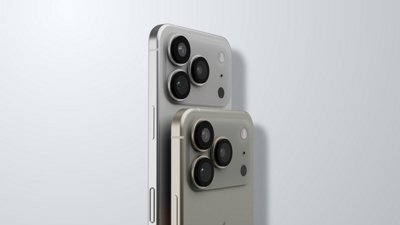
 William Gallagher
William Gallagher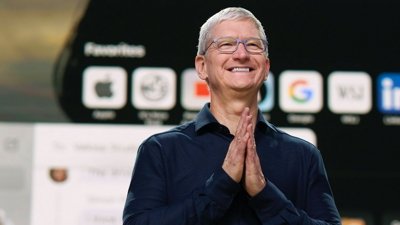
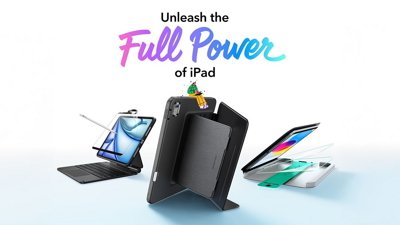
 Sponsored Content
Sponsored Content
 Amber Neely
Amber Neely
 Malcolm Owen
Malcolm Owen
 Mike Wuerthele
Mike Wuerthele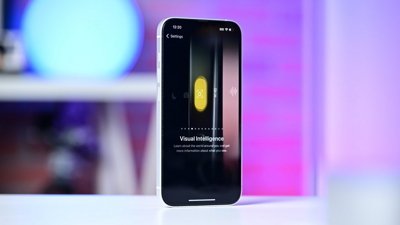
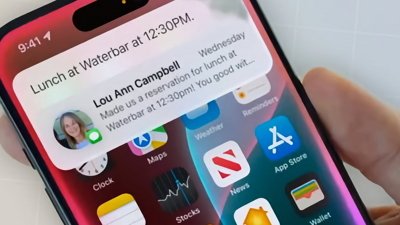
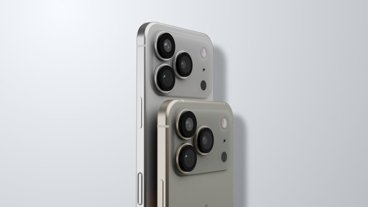
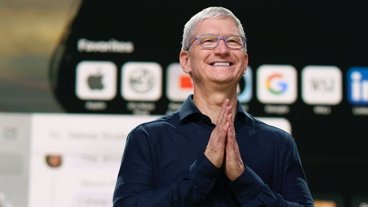







17 Comments
Don't forget their Apple TV, err media streamer:-


Could be that the name indicates a return to the stylus-and-handwriting-recognition paradigm, which would seem to be enormously useful for Chinese characters. Or for any other pictographic writing scholarship, for that matter. It would be interesting if they could pull something like that off.
Slightly off-topic, but don't miss today's NPR story on the Ive and Jobs partnership:
http://www.npr.org/2010/12/30/132488...rship-At-Apple
Maybe Apple should buy HTC and use it for something. Just over 8 billion might be cheaper than the lawyer's fees in the end.
Could be that the name indicates a return to the stylus-and-handwriting-recognition paradigm, which would seem to be enormously useful for Chinese characters. Or for any other pictographic writing scholarship, for that matter. It would be interesting if they could pull something like that off.
Slightly off-topic, but don't miss today's NPR story on the Ive and Jobs partnership:
http://www.npr.org/2010/12/30/132488...rship-At-Apple
FYI most Chinese in the world use the keyboard instead of handwriting to input Chinese characters.
Could be that the name indicates a return to the stylus-and-handwriting-recognition paradigm, which would seem to be enormously useful for Chinese characters. Or for any other pictographic writing scholarship, for that matter. It would be interesting if they could pull something like that off.
Slightly off-topic, but don't miss today's NPR story on the Ive and Jobs partnership:
http://www.npr.org/2010/12/30/132488...rship-At-Apple
iOS and Mac OS X already support hand writing for Chinese characters.